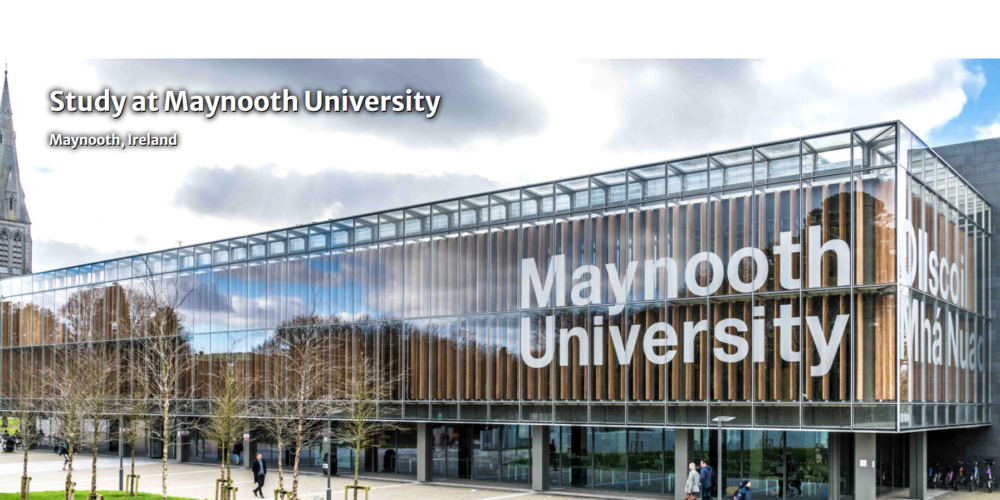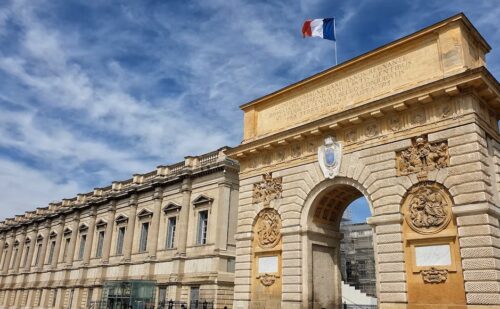
Dipti Pandya – Erasmus, Maynooth and the “Glenroe” Theme Tune
Gerry O'Sullivan
Posted: 15 September, 2021
UK native and UCD Research and Innovation executive Dipti Pandya is in the process of taking out Irish citizenship. The former Erasmus alumnus says “I have spent more of my life in Ireland than I ever did in the place of my birth, the UK. Brexit has brought me great sadness most especially the UK’s exit from Erasmus+, as it means that my successors will not be able to avail of the transformative Erasmus experience that has enriched my life.”
Dipti first heard of the Erasmus programme whilst at the University of Essex when pursuing an undergraduate programme (BA hons) in Government. She explains “I had decided to study for a Masters as I was enjoying the education experience and the job market in 1993 for primary degree graduates were somewhat limited.
I researched potential Masters options and came across the MSc in European Social Policy Analysis (with its acronym: MESPA) at the University of Bath. One of the most attractive features of the study was the opportunities offered to travel through the Erasmus exchange programme.
I had limited experience of travel through study and had not undertaken interrailing as many of my friends had. In fact, I had worked my summers in jobs including one at the UK Home Office. One of my key ambitions was to work in the European Commission. This was driven by my many stays in Brussels with my Uncle (he was an EC Director) and family and through studying EU institutions and politics at Essex. I viewed the MESPA as the next step on the ladder to achieve this aim and to experience Europe through living there. Erasmus was the only way to do this for me. It provided a safe environment due to the accommodation provided and the financial ability to do so. I could not have considered EU travel and residency without Erasmus.
The MESPA programme provided an opportunity to tailor the Masters according to my preferred areas of study due to the ability to select programmes at the partner universities. This was long before the modularisation we have today. The MESPA programme in 1993 was a joint EU partnership between the University of Bath, Maynooth University (then St Patrick’s College, Maynooth), Tilburg University, and Roskilde University. The most attractive feature for me was the ability to study in three different universities during the single 12-month course of study.
In addition to the Erasmus support, I was also awarded a scholarship from the UK government Department of Employment with a topic for my thesis on unfair dismissal rights and labour law. For my first term, presented with a choice of Roskilde University in Denmark or Maynooth University, I decided to select Maynooth. The main reason for this was because I was more interested in the programme modules offered at Maynooth. Most especially, Ireland, offered proximity to my parents in London. Looking back now I consider how quickly I made this choice which ultimately changed my life!
Upon taking the ferry by car with my parents, my first impressions of Ireland, were that it was very different to London. I think in my mind I imagined it would be quite similar to London. In fact, I was to study in Maynooth, which at that time, was a small university town, quite a distance (or so it felt) from the capital Dublin. Whilst it was English speaking (another consideration) it did not feel “English”. This of course, I now understand was because it was another country but explains my ignorance of the time. When I arrived the weather was not kind, and Maynooth felt cold and damp. Looking back I probably questioned my choice. My parents still remind me of this, commenting how I ended up moving to Ireland and setting up home here, only a few miles from Maynooth as it happens. One of the first things we did was to buy another duvet as I was unsure if I could take the cold university apartment! My parents encouraged me to try it out and see. They reassured me that I could return anytime if I was unhappy!
Quickly, my experience changed from rather negative first impressions to more positive. As soon as I met my fellow students and got to know the university town, everything was transformed for me. I found the study programme itself very interesting. As a group, the University looked after our Erasmus group really well and made us feel special. Not being the only Erasmus student also helped, as our experience was shared. Whilst many of the Irish students went home for the weekend, we regularly travelled into Dublin City Centre on the bus and got out to see Ireland. We even engaged in local Maynooth social activities, with the cinema in the Aula Maxima on campus a regular Sunday outing.
Coming from London, I found myself liking living in a small town, with its friendly and welcoming nature. I met and made lots of friends and started to see the similarities between my background and the Irish upbringing. In particular, family values, warmth and friendliness. I was lucky that the diversity on the programme itself gave me a wonderful opportunity to engage with both locally based students and fellow international students from the Netherlands and Slovenia. I really started to feel at home in Ireland. So much so, that I still remember the Glenroe theme music on a Sunday night! The richness of experience offered to me was brilliant.
I stayed for the full length of my ten-week first term in Ireland. Whilst it would seem rather strange now, I did not travel home for any of that time. This was due to the prohibitive flight prices at the time. At that point (Covid travel restrictions have since passed this by) this was the longest time I had been away from my parents, family and home in my lifetime. My second term was at my host university, University of Bath, followed by Erasmus travel to Tilburg University, and then a return to Bath for the completion of my thesis.
In a professional context, spurred by my own positive experience working with Erasmus, I have continued working in a European context. After graduating from the MESPA programme, I returned to Ireland to take up a stagaire at the European Foundation for the Improvement for Living and Working Conditions, in Loughlinstown, Co.Dublin. Following the stagiaire, I went on to work as a Researcher at UCD on a European Commission funded project. Later, as Director of the Irish Research Council for Humanities and Social Sciences, I was able to meet and work with some of my MESPA lecturers from Maynooth, as well as from the University of Bath. In my current role at UCD Research, a key part of my job is to support UCD researchers to engage in European research funding programmes such as Horizon Europe. To complete the circle, in 2020 I was appointed to the Board of Léargas, a fantastic organisation that uses Erasmus to provide transformative opportunities for young Irish people. I view this appointment as my opportunity to return the favour.”
Almost three decades later Dipti has not lost her connections with Maynooth and its environs. “In a personal context, my life totally changed by my move to Ireland. In 1996, I met my now husband at UCD whilst both working as researchers. We married in 2003 and have been blessed by four children. We live in Kilcloon, County Meath, with our nearest town being Maynooth where we regularly take walks around the old campus.”


